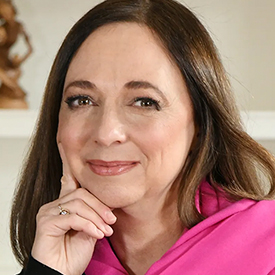When at age 33 I quit corporate law to become a writer, most people I knew, including my very own self, thought I was nuts. I’d dreamed of being a writer since I was four, but when I graduated college, I decided I should be practical. So I applied to law school and for the next decade forgot all about writing. I had never published a word in my life.
But my plan was not as rash as it seemed—and if you dream of a literary life, neither is yours. Here are five counter-intuitive pieces of advice, drawn from my own experience.
1. Don’t set out to be a writer.

Set out, instead, to write. When I first started, I knew that the odds of getting published were slim. So I told myself that I probably wouldn’t publish anything until I was 75. That took the pressure off.
2. You need a safety net.

People are always celebrating the courage of those who chuck A in order to do B, but I am not a brave person, and maybe you aren’t either. You probably need an alternative source of income. When I first quit law, I made writing the beloved hobby—but not the career—around which I centered my life. In the meantime, I set up a small consultancy, training people in negotiation skills. This gave me the chance to do meaningful work, pay the bills, and still have plenty of time for my “hobby.” That took the pressure off. (Taking the pressure off is a recurrent theme with me. )
3. In the age of social media, resist the urge to share:

For many people, the things most worth writing about are also, inconveniently, too painful or embarrassing to talk about. The only solution to this tension is to write in your diary—to write as if no one will ever read it. Write exactly what you think and feel, with no fear of judgment. Eventually, you’ll produce something so important that you’ll feel compelled to share it, despite your trepidations.
4. Writing is not supposed to be hard.

You have probably heard that you’re supposed to leave drops of blood on every page. This is not true. Well, it’s sort of true. Writing does require tons of discipline, perseverance, and concentration. But it should not be unpleasant. It should be the thing you itch to do every day. You can train yourself, in Pavlovian fashion, to feel this way by making sure that you always write in conditions of pleasure. For me, that means writing in sunny café windows, with a latte and chocolate on hand. For you, it might be something completely different. But sunny windows and chocolate are a great place to start.
5. Enjoy.

Whether you publish or not, the greatest thing about writing is that it gives meaning to everything you do in the world. Everywhere you go, every conversation you have, everything you observe—it is all grist for your writerly mill. This heightens all experience—whether you publish before age 75 or not.
This post originally appeared on Quiet Revolution.






























